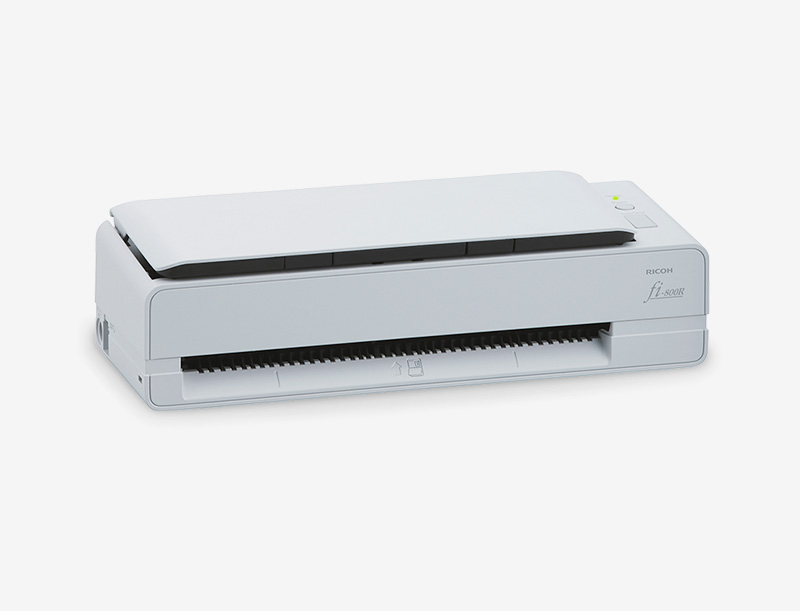To ensure excellent employee records management, you'll have to record the right information, organize it intelligently, and keep it secure
If you work in HR, then having stellar employee records management is vital to your success. Keeping detailed records can streamline your clerical work, assist in legal matters, and even ensure compliance with both state and federal laws. With the right tools, you can pull up substantive information about any employee at a moment's notice.
While keeping physical records is a tried-and-true method, modern scanners and database software make it simple to digitize this information as well. We'll cover what you need to know about HR files records management from practical, legal, and technological standpoints.
Read our guide to business information management systems to find the practices, tools, and software you need to keep your business’ essential info accessible.
What is employee records management?
Employee records management is the practice of maintaining pertinent information related to employees and ensuring it is available when it is needed (and only when needed). Every business has employees, and each of those employees has a unique set of circumstances that make them who they are. An employee record could include everything from simple clerical information (name, birthdate, phone number, etc.) to comprehensive work histories (awards, certifications, infractions, etc.).
Managers, supervisors, and HR reps need to reference employee records constantly, whether it's to confirm a mailing address or evaluate a salary. Furthermore, since employee records often include sensitive details, such as demographic data and personally identifiable information, and they must abide by national or state concerns such as California Privacy Rights Act compliance, it's up to HR managers to keep this information as private and secure as possible. This is where digitization and employee records management software can come in handy.
What information should you include in employee records?
Generally speaking, you'll want two types of information about each employee: clerical details and work-related records. The Society for Human Resource Management recommends keeping at least two separate documents for each worker: a "personnel file" for managers, and a "confidential file" that contains more sensitive information.
A personnel file might include:
- Application and resume
- Promotions and transfers
- Salary and benefits
- Awards and certifications
- Performance evaluations and disciplinary actions
A confidential file might include:
- Background check
- Birthdate
- Demographic data
- Marital status
- Social security number
Human resources records management may also require a separate medical file, particularly if the employee has a disability covered under The Americans with Disabilities Act.
The federal government imposes strict requirements on how long a company retains this information. According to the U.S. Equal Opportunity Employment Commission, employers must keep personnel records for one year after a worker leaves, whether voluntarily or involuntarily. Employers also need to keep payroll records for three years.
Ultimately, the responsibility for compliance falls to HR. Ensure that a system is in place to delete data after the one- and three-year marks, whether you use a calendar reminder, a spreadsheet, or a dedicated piece of employee records management software.
Technology for employee records management
The traditional method for storing employee records is to simply keep them in a locked file cabinet, and put the key somewhere secure. If nothing else, the system is impervious to cybercriminals. However, physical storage has a few drawbacks as well. Only one person can use the system at a time; searching through it requires a lot of manual labor; and a lost or stolen key can shut the whole thing down indefinitely.
While keeping physical records is a solid backup plan, digitization can make everyone's life a lot easier. Using a high-speed scanner, a dedicated HR rep could create digital replicas of thousands of employee records in a single day. The right scanner technology will also process the text in these digitized documents so they become instantly searchable.
With a well-equipped database management program, an HR department can then organize this data any way it sees fit — alphabetically, by department, by pay range, and so forth. With proper permissions and password protection, an HR files record management system can restrict access to authorized employees and log any instances of improper use.
Did You Know?:The fi-8170 can scan up to 70 pages per minute and 10,000 pages per day. Click here to learn more.
Human resources records management best practices
Accurate employee records can have significant effects on a worker's productivity, professional progress, and privacy. As such, recording and storing inaccurate records could endanger an employee's good standing, career advancement, or even their personal life. Furthermore, failure to comply with federal standards could lead to intense scrutiny from the U.S. government.
As such, experienced HR reps should teach their less-experienced colleagues how to gather information for employee records, as well as how to store and access it. This also means walking them through the ins and outs of any employee records management software that the company uses.
While there is no hard-and-fast way to evaluate the success of your employee records management practices, consider talking with managers and supervisors, especially after they give performance evaluations. If they were able to access accurate personnel files easily, that's a good sign. Conversely, if they were unable to do so — or if they also found confidential information, to which only HR should have access — a component in your system is malfunctioning.
Did You Know?:ZDNet gave the fi-8170 scanner 4 out of 5 stars, praising its feed management, overscan protection, and image quality. Read the full review here.
Our recommendation: fi-800R
Those in the market for employee records management solutions have no shortage of options. We take great pride in having spent the last 50+ years researching, designing, and developing some of the most advanced and powerful electronics in the world, including our professional grade fi and SP Series of scanners.
Built to purpose for the most demanding document handling jobs, fi and SP scanners are capable of processing tens of thousands of pages per day at the highest levels of accuracy. Their intuitive integration capabilities with all existing work suites minimize time-to-value for businesses looking to invest in tools that will pay dividends for years to come.
The fi-800R is an ultra-compact and versatile scanner, making it the ideal tool for aiding with employee records management wherever it’s needed most. The fi-800R’s dedicated front feeder safely and reliably scans thick or delicate documents such as IDs and social security cards, while its automated document feeder supports double-sided scanning of up to 40 pages per minute to quickly work through stacks of records. Click here to learn more or shop the rest of our production scanner line.

Note: Information and external links are provided for your convenience and for educational purposes only. PFU America, Inc. makes no representations about the contents, features, or specifications on such third-party sites, software, and/or offerings (collectively “Third-Party Offerings”) and shall not be responsible for any loss or damage that may arise from your use of such Third-Party Offerings.











